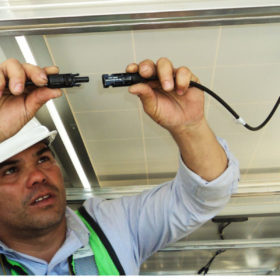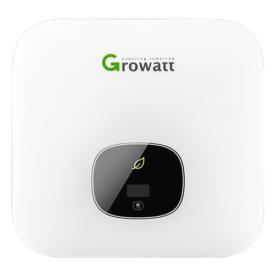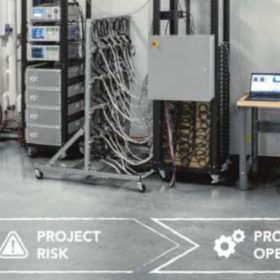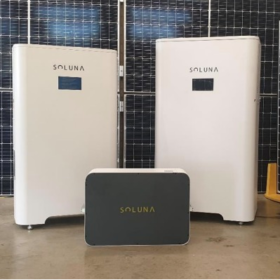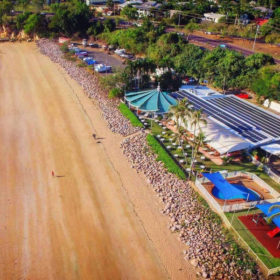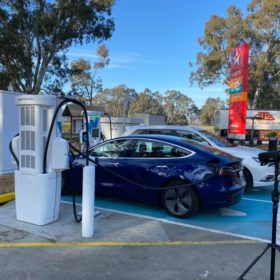The number of climate deniers in Australia is more than double the global average, new survey finds
Australian news consumers are far more likely to believe climate change is “not at all” serious compared to news users in other countries. That’s according to new research that surveyed 2,131 Australians about their news consumption in relation to climate change.
QLD green lights $23M Renewable Energy Training Facility
The Queensland Government’s “Unite and Recover” phase of its response to the economic impact of Covid-19 includes $17 million in funding for a Renewable Energy Training Facility in Brisbane. The Sunshine State seems to be realising its solar future.
Australian scientists develop new transparent electrode material
Scientists in Australia have developed a new transparent conductive oxide which could be used in solar cells, smart windows and other applications. The material is indium free and recyclable, according to the researchers.
Growatt selected for Ikea’s turnkey solar offer in Australia
Inverters and batteries from Chinese manufacturer Growatt have been included in Ikea’s solar offers in Australia.
New Battery Performance Standard proposed for Australia, and possibly the world
A new Battery Performance Standard for residential and small-scale commercial applications has finally been submitted to Standards Australia. If adopted, the standard could clarify consumer confusion around which energy storage system is right for them.
Soluna home batteries receive CEC approval
Soluna Australia’s lithium-ion residential energy storage systems have achieved accreditation with the Clean Energy Council and are now eligible for incentives under the federal and state government programs.
NT to reform its electricity market for transition to solar
The Northern Territory Government has announced a Reform Program, an itinerary of electricity market changes to take place in the near future in order to better integrate renewable energies, particularly solar.
Caltex and Evie Networks partnership is on the charge
The first of six Evie Networks ultra-fast EV charging stations at Caltex/Ampol retail outlets in Victoria and New South Wales is up and charging. The Avernel site is strategically positioned between Melbourne and the VIC-NSW border town of Wodonga.
Marinus in a blink
Prime Minister Scott Morrison today announced six of 15 projects to be fast-tracked for jobs creation, among them the Marinus Link interconnector between the Australian mainland and Tasmania, which promises to unlock renewable projects on either side of Bass Strait.
A solar fresh-food logo for Woolworths Orange
Will it start a new trend for logo-shaped solar arrays? Probably not, but the new installation on a supermarket in regional New South Wales lowers emissions and raises a smile in challenging times.

